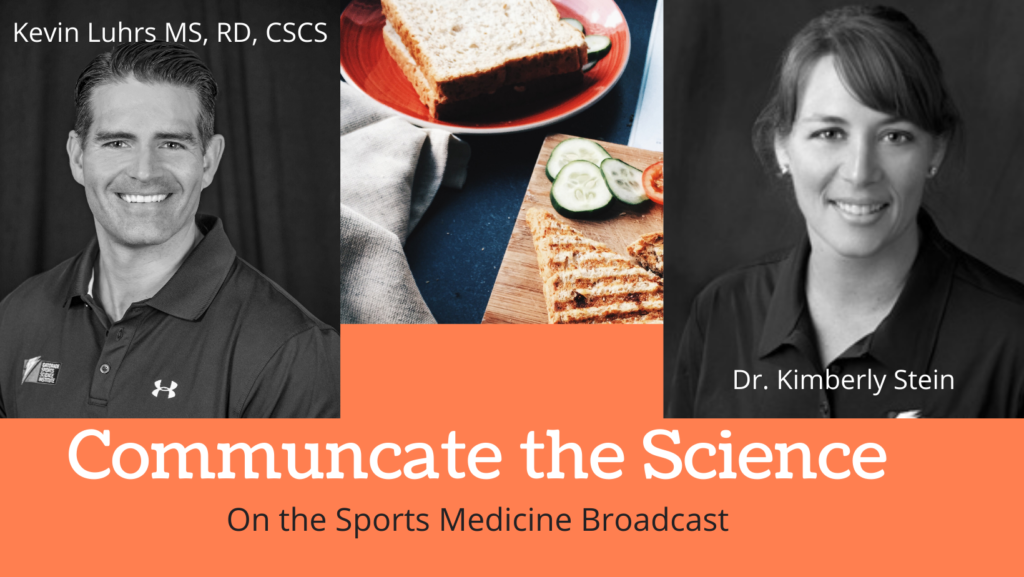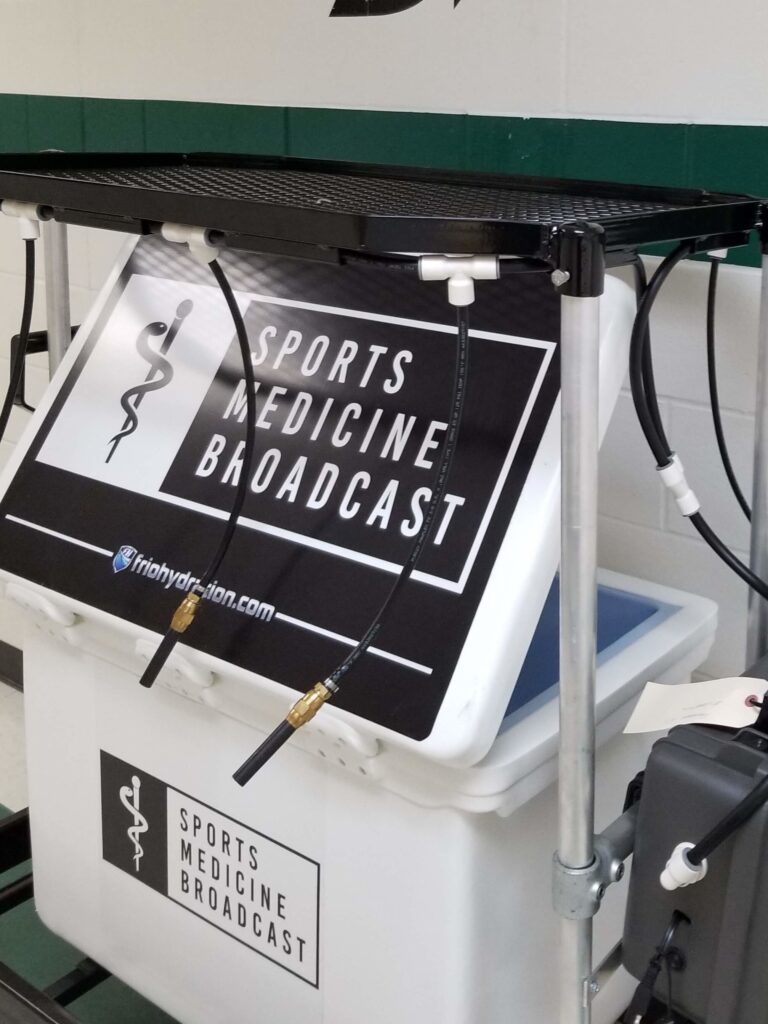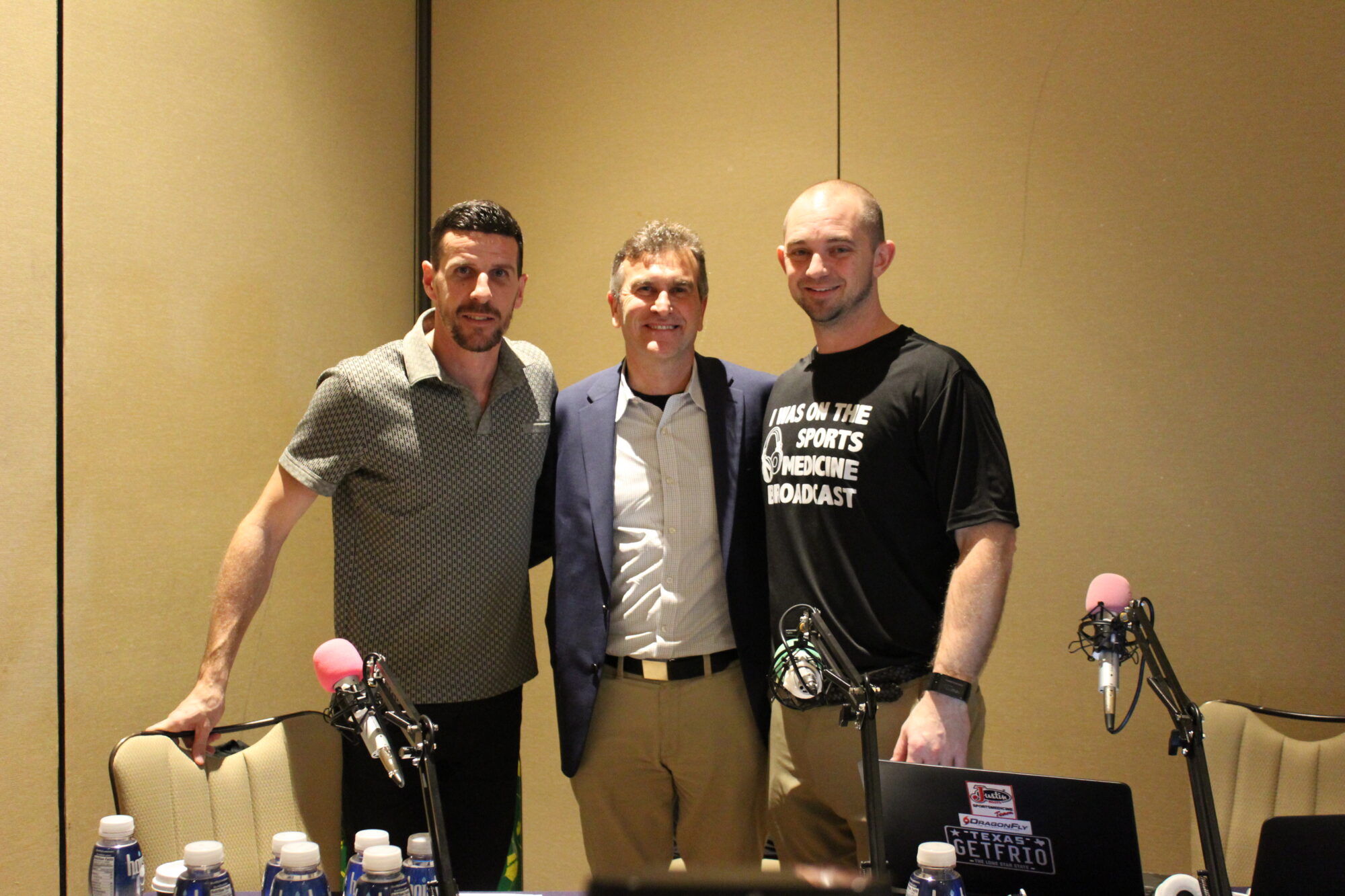Podcast: Play in new window | Download
As a collegiate coach, Dr. Kimberly Stein had to communicate the science of recovery and nutrition to her teams.
Being a pioneer in the NFL Kevin Luhrs had to communicate the science behind the small changes to improve player performance.

What does effective communication mean to you/look like to you?
KS:
- We think it is cool and give them the details but they do not really care
- Keep it simple
- Meet them where they are
KL:
- transfer of knowledge
- Find where they are and stay one step ahead of them
What barriers have you run into while trying to share science?
KL:
- I started in 2010
- I think the number of Sports dieticians has doubled in college athletics
- Appeal to the why – Why are you tired on the field, why are you sluggish? Keep monitoring them.
KS:
- You have to sell it as another training aide
- Potential injury prevention
- START WITH WHY
What are the best steps to introduce science into a conversation effectively?
KL:
- Plant the seed
- Ask questions
- I had the opportunity to communicate the science in front of the whole team
- I had a lot of consultations in the whole way or in the At Facility
KS:
- Meeting them for the first time is not the best time
- What do you think about nutrition and performance?
- What do you think you need to perform?
- “Let’s try just a little bit of energy” not well the RDs recommend 20 ML of fluid every 20 minutes of heavy activity.
How can you get a team of professional athletes to take interest in the science behind sport?
KL:
- Where do I start?
- Fried catfish Fridays
- Implement it into practice as you educate them
- Small changes
KS:
- Older athletes kinda lead the way for me…they wanted to extend their career.
- Nowadays we see athletes that are asking questions as soon as they get the contract.
How do you adjust your communication methods between a practitioner audience or a professional athlete audience?
KS:
- Practitioners get more of the science
- They want to see the charts and graphs and data
- But you are still not talking to other scientists so do not go overboard.
- Use visuals often.
- Professional athletes
- Let them ask questions and get a feel for what they want
- Use examples of places and people it has worked with
- Coaches
- They have to be the key in implementing it.
- Allowing water breaks
- Allowing practice to start later so the team has time to eat.
- But they also need to internalize this personally
KL:
- Educate them so they can communicate the message when needed
- Being on the same page as a staff is probably the biggest key to success..coaches, admin, everyone
How can someone communicate why their recommendations are effective for reasons beyond the science?
KL:
– We definitely have to convince people or sell it at times
– Like Dr. Stein said, science is not black an white, it is evolving
KS:
- Yes!!!
- Understand the science of behavior change
- You are not really changing the diet but changing their behavior
- Tiny Changes
How can a practitioner determine whether information is best communicated visually through graphics or data, or through straightforward text?
KS:
- Pee Color chart
- Having a picture of carbohydrates…giving examples
- Do this instead of a list
KL:
- Weigh in charts for hydration
- Traffic light training system
- Go
- Slow
- Whoa
What are your recommendations for sharing/communicating the science via social media? What are some effective posts/sources that you’ve seen recently?
KS:
- We are a headline driven society..so it is hard to communicate the science accurately
- Who know how valid the “reports” are
- Get with the team captains and see if they can share the good stuff on their personal info
KL:
- Point towards some that are doing the right thing.
What are some scientific resources you would recommend for someone who is trying to expand their sports performance research knowledge?
KS: – www.GSSIweb.org – hands down
KL: Sports Science Exchange or Gatorade performance partner website
Contact Us:
Dr. Kimberly Stein -@KimWhiteStein
Kevin Luhrs –
Jeremy Jackson – MrJeremyJackson
These people LOVE Athletic Trainers and help support the podcast:
Frio Hydration – Superior Hydration products.
Donate and get some swag (like Patreon but for the school)
HOIST – No matter your reason for dehydration DRINK HOIST
MedBridge Education – Use “TheSMB” to save some, be entered in a drawing for a second year free, and support the podcast.
Marc Pro – Use “THESMB” to recover better.

